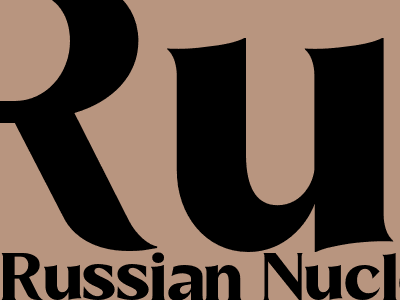
Russian Nuclear Forces on High Alert
Putin Orders Nuclear Deterrence Forces on High Alert Amidst Ukraine Invasion
On Sunday, February 27, 2022, Russian President Vladimir Putin ordered his country's nuclear deterrence forces to be placed on high alert in response to "aggressive statements" made by NATO countries. This move has raised global concerns about the potential for nuclear escalation in the wake of Russia's invasion of Ukraine.
Background and Context
The Russian invasion of Ukraine, launched on February 24, 2022, has sparked international condemnation and sanctions. NATO has played a key role in coordinating the Western response to the crisis, providing military aid to Ukraine and imposing economic sanctions on Russia.
Putin's decision to put Russia's nuclear forces on high alert is seen as a significant escalation in tensions. It comes after several NATO leaders, including US President Joe Biden, warned that any use of nuclear weapons by Russia would have "catastrophic consequences."
Implications and Risks
The consequences of a potential nuclear conflict are immense. According to the Arms Control Association, there are currently around 13,800 nuclear weapons in the world, with Russia and the United States possessing the majority of them. Even a limited nuclear exchange could have devastating effects on human life, the environment, and the global economy.
Putin's order has heightened fears that the conflict in Ukraine could escalate into a wider, more dangerous war. It has also raised questions about the reliability of Russia's nuclear deterrence strategy and the potential for miscalculation or accidental escalation.
International Reaction
The international community has strongly condemned Putin's decision to put Russia's nuclear forces on high alert. NATO Secretary-General Jens Stoltenberg called it "a dangerous and irresponsible act" that "increases tensions and risks miscalculation." The United States and other Western countries have also expressed concern and urged Russia to de-escalate.
The United Nations Secretary-General, António Guterres, has appealed to all parties to avoid any actions that could increase the risk of nuclear war. He stressed that "nuclear weapons are not the answer" and called for dialogue and diplomacy.
Conclusion
The decision by Russian President Vladimir Putin to put Russia's nuclear forces on high alert is a deeply concerning development that has raised the stakes in the conflict in Ukraine and beyond. The potential consequences of a nuclear conflict are immense, and it is crucial that all parties involved take immediate steps to de-escalate the crisis and prevent a wider war.